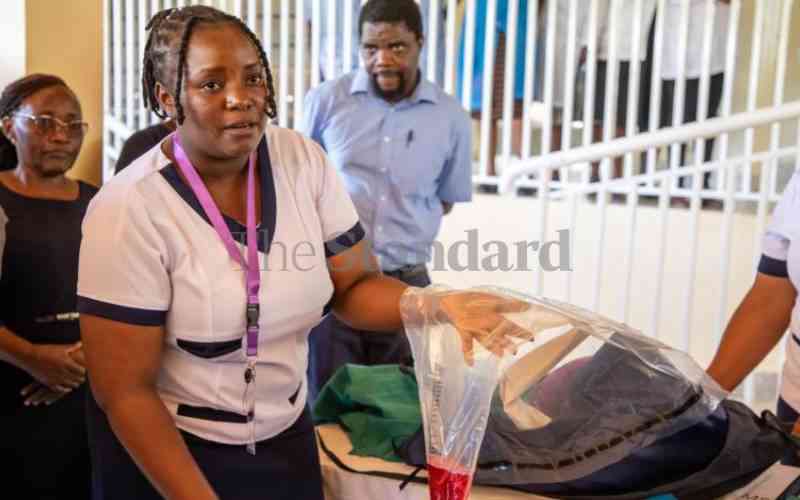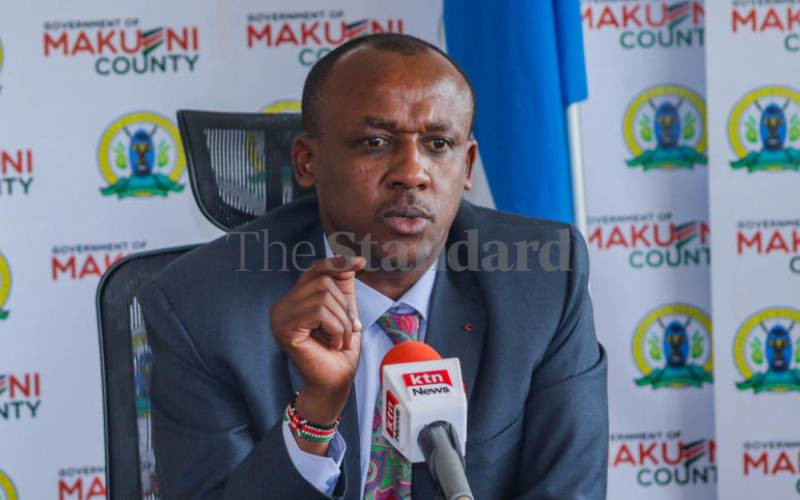A stream of tweets from 27-year-old and new mother Mama Boo just went viral. The comments she generated under the hashtag #HospitalNegligenceKE were right on time. As we globally celebrate Maternal Health Day, we must do more to keep mums and babies safe as well as keep adolescents free from premature parenthood.
Mama Boo’s tweets detail with agony her experience of giving birth in a private Nairobi hospital in January. Demands for hefty financial deposits before emergency treatment, absent or abusive doctors, further delays and untreated after surgery tears was her experience. Despite seeking service in the capital city, her experience is mirrored by countless stories by women from economically marginalised communities. For most, major killers are health fraud, poverty, distance, harmful cultural practices and inadequate services and information in this order.
Most women die from complications during and after pregnancy and childbirth. The tragedies of babies and mothers dying at childbirth are preventable and treatable. Two thirds of the deaths are as result of severe bleeding, infections, high blood pressure or unsafe abortions. We owe it to Mama Boo, mothers and fathers to demand an end to the danger and indignity that accompanies childbirth.
Our experts tell us that the numbers of women and babies that die at childbirth in Kenya are dropping. Kenya is one of five countries alongside Rwanda, Senegal, Tanzania and Uganda that could meet the under-5 Sustainable Development target by 2030 (25 deaths for every 1,000 births). If we do, it will be because of counties like Mandera, Isiolo and Nairobi are increasing public investment in health facilities, equipment and medicine. It will also be because National Health Insurance Fund coverage has expanded to cover teenagers.
Increased public awareness and demand for enforcement of the Constitution (Article 43), Health Act and Patient Charter is critical. Under the Linda Mama programme, all women and girls have the right to be treated with dignity. Being more aware of our rights, having the courage to speak out and where needed, sue for negligence of medical denial is how citizens will accelerate the trend towards safe pregnancies.
Those whose rights have been violated must seek justice from both the Kenya Medical Practitioners and Dentists Board and the Kenya Health Professions Oversight Authority. If these avenues fail, there is also the Judiciary. We can also demand that all county governments publicly share and enforce procedures for making and handling of complaints by aggrieved persons.
The challenges facing safe motherhood relate to another topical public conversation. Should the Sexual Offences Act be revised to drop the age of consent to sexual intercourse from 18 to 16 years? Three judges proposed this to stem large numbers of young men serving sentences for “consensual” sexual intercourse with minors. Their position is backed by evidence that adolescent girls and boys are already voluntarily engaged in sexual activity. Secondly, there are glaring inconsistencies between the laws criminalising teen sex and there is a need to provide contraceptives and other reproductive health services.
There are huge risks in overturning one of the biggest pillars of our gender related laws. Will it open the door to pedophiles, back-street abortions or ill-prepared teenage parents and reverse gains in the numbers of girls finishing secondary school?
All agree that the criminalisation and imprisonment of male teenagers is alarming. So too must be the prospect of children growing up with under educated dads with felonies and single mums who also have had their schooling interrupted. Until we can answer these questions and safeguard against these probable futures, we had better not tamper with the age of majority.
The challenge of safe maternal health services and the debate on lowering the age of consent for sexual intercourse are interconnected. This week, Ivy Wangechi was killed by a man who felt his advances had been scorned. The incident and the online debate that followed demonstrates that Kenya is not yet a society that denies men, the belief that they are entitled to the affection and bodies of women. How will we achieve this with adolescent girls if we can’t with adult women?
As we mark Maternal Health Day this week, we must place all our efforts behind women like Mama Boo and Ivy Wangechi. May the arc of justice bend towards them both.
- The writer is Amnesty International Executive Director. [email protected]
 The Standard Group Plc is a
multi-media organization with investments in media platforms spanning newspaper
print operations, television, radio broadcasting, digital and online services. The
Standard Group is recognized as a leading multi-media house in Kenya with a key
influence in matters of national and international interest.
The Standard Group Plc is a
multi-media organization with investments in media platforms spanning newspaper
print operations, television, radio broadcasting, digital and online services. The
Standard Group is recognized as a leading multi-media house in Kenya with a key
influence in matters of national and international interest.
 The Standard Group Plc is a
multi-media organization with investments in media platforms spanning newspaper
print operations, television, radio broadcasting, digital and online services. The
Standard Group is recognized as a leading multi-media house in Kenya with a key
influence in matters of national and international interest.
The Standard Group Plc is a
multi-media organization with investments in media platforms spanning newspaper
print operations, television, radio broadcasting, digital and online services. The
Standard Group is recognized as a leading multi-media house in Kenya with a key
influence in matters of national and international interest.








